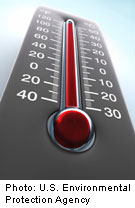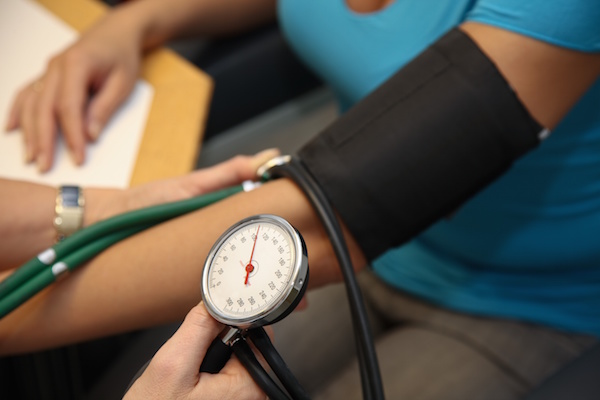
THURSDAY, June 9 (HealthDay News) — With record-breaking heat searing much of the eastern half of the United States — and with little relief in sight — health experts are urging people to protect themselves from the threats posed by oppressive temperatures and humidity.
“The elderly, young children and infants, and people with cardiac disease and those who are taking certain medications, especially antidepressants, are most at risk for a heat stroke,” noted Dr. Lisandro Irizarry, chair of the emergency department at the Brooklyn Hospital Center in New York City.
“After two or three days of heat, people — primarily the elderly — may exhibit signs of dehydration, including lightheadedness, nausea, confusion, difficulty concentrating, and lack of thirst because the body starts conserving fluid,” he said.
Dr. Andrew R. Edwards, an associate professor of emergency medicine at the University of Alabama at Birmingham, agreed that as the early season heat wave tightens its grip, people young and old need to focus on staying safe.
In a university news release, Edwards offered these tips:
- Stay hydrated by drinking plenty of fluids. Alcohol and caffeine do not count, they will dehydrate you. Stick with water or sports drinks.
- If you must be outside, try to stay in the shade and monitor activity.
- Keep an eye on perspiration. If you stop perspiring, get more fluids immediately.
- If you start feeling light-headed or dizzy, this is a sign that heat-related illness is imminent. Get somewhere cool and immediately get fluids into your system.
Irizarry noted that antidepressant users may be at heightened risk because the drug “decreases the skin’s ability to lose heat through evaporation — sweating — which is the body’s primary means to get rid of heat.” This means that people on these medications need to be especially careful to drink lots of fluids and stay cool.
The U.S. Centers for Disease Control and Prevention also has this advice:
- Limit your outdoor activity to morning and evening hours.
- Cut down on exercise. If you must exercise, drink two to four glasses of cool, nonalcoholic fluids each hour. A sports beverage can replace the salt and minerals you lose in sweat. But if you are on a low-salt diet, talk with your doctor before drinking a sports beverage.
- Electric fans may provide comfort. But when the temperature is in the high 90s, fans won’t ward off heat-related illness. Instead, take a cool shower or bath, or move to an air-conditioned place.
- Wear lightweight, light-colored, loose-fitting clothing.
- Never leave anyone in a closed, parked vehicle.
- While anyone can be stricken with heat-related illness, certain groups of people are especially vulnerable, including infants and young children, people 65 and older, those with a mental illness, and those who are physically ill, especially with heart disease or high blood pressure.
On Wednesday, temperatures soared into the 90s — and approached 100 degrees — throughout much of the South, the East and the Midwest. Baltimore and Washington, D.C. both recorded temperatures of 99 degrees, breaking records for the date. The normal high for the date is about 82, the Associated Press reported.
In Philadelphia the mercury hit 97 degrees, breaking a 2008 record of 95, and Atlantic City, N.J., tied a record of 98 set in 1999. Chicago hit a high of 94 degrees, the AP reported.
The heat wave has been blamed for the deaths of five elderly people in Tennessee, Maryland and Wisconsin, the news service said.
And a new study from Stanford University predicts that scorching temperatures will become the new normal, with unusually hot summers by the middle of the century. The culprit cited by the researchers: global warming, the AP reported.
More information
For more on protecting yourself from the heat, visit the U.S. Centers for Disease Control and Prevention.

